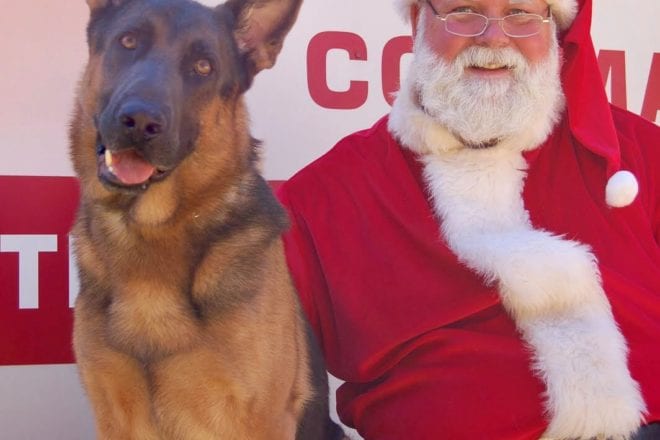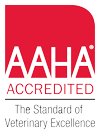Well, folks, it’s been another great year here at The Vet House, and we wanted to take the time to wish you all a very Merry Christmas and Happy New Year for 2019!
Holidays are a time of celebration, but they can also be a dangerous time for our furry family. The last thing you want during your holiday is an emergency trip to the vet because your pet got into the chocolates! Check out holiday safety tips below.
We’ll be taking a few days off to celebrate, so keep in mind our holiday hours if you want to stop by for a visit:
- December 24: CLOSED 12:30pm
- December 25: CLOSED – Merry Christmas!
- December 26: OPEN
- December 31: CLOSED 12:30pm
- January 1: CLOSED – Happy New Year!
Holiday Safety for Your Cats and Dogs!
Happy Holidays everyone, it’s that time of the year again! Houses are lit up and festive for the season, but full of new dangers for pets. The last thing you want to be doing on Christmas morning is frantically trying to get a hold of an emergency vet. Pets are curious creatures, and new household decorations can be irresistible to explore. In this post, we have put together the five most common seasonal dangers that can put your pet’s health at risk. Avoid an accident and protect your furry family from serious harm with these helpful tips to stay safe.
Food and Bones
Holiday seasons are a time of feasting on extravagant meals with family and friends. Bits of turkey in small quantities can be an enjoyable treat for your canine companion, but the bones can be hazardous. Raw bones are fine and even a healthy treat, but when turkey is cooked, the bones become brittle. They can break into tiny, razor-sharp pieces that, if swallowed, pose a serious threat to your pet. When a bone makes it into the digestive tract, a sharp piece may perforate the bowel. A perforated bowel can allow bacteria, stomach acid, or bile to enter the abdomen, which is life-threatening. The common symptoms of a perforated bowel are vomiting, chills, fever, rapid heartbeat, and exhaustion. Excessive amounts of fatty foods, like the carcass of the turkey, can also be dangerous to pets. The small digestive systems of cats and dogs cannot process a lot of fat. If you want to share your holiday meal with your pet, cut off a small piece of turkey and limit it to that. Always remember when you give your pet table scraps that you are treating them, not feeding them. Finally, always make sure to secure the trash from the dumpster diver pets! There will be an excessive amount of foil, plastic, and other materials full of food remains that will be tempting to your pet. These can be choking hazards and can cause dangerous digestive tract obstructions.
Holiday Plants
Many of the plants that are popular at Christmas time can be poisonous to pets if ingested. If you plan on decorating with lilies, holly, mistletoe, and poinsettias, be sure to put them out of reach. Even a small amount can be toxic. If you suspect your pet has eaten any of the following, make sure to bring them to a vet immediately.
Lilies are poisonous to cats. A single leaf can be fatal if swallowed. Even a bit of pollen on their coat can be ingested during self-grooming. The pollen from lilies will cause vomiting, diarrhea, loss of appetite, and potential kidney failure.
Holly berries and leaves are dangerous for both cats and dogs. Ingestion can cause severe vomiting, discomfort, and depression.
Mistletoe in mild cases can cause an upset stomach, resulting in vomiting or diarrhea. In extreme cases, it can cause hallucinations, erratic behavior, and even heart collapse. If you must use real mistletoe, keep it away from pets by placing it on high surfaces that are inaccessible to cats and dogs.
Poinsettias cause irritation to the stomach and mouth of both cats and dogs. The sap from a plant will blister their mouths within minutes of ingestion. Although the white sap in poinsettias does cause vomiting, it is less dangerous than the other plants on this list.
Christmas Trees
Christmas trees can be the dazzling focal point of your home during the holiday season. As well as being beautiful, they introduce many hazards to your pets. Here is what you need to do to minimize the risk of injury.
Pine needles can make a tempting (but hazardous) snack. Be sure to keep lots of water in your tree stand so that the needles do not dry out and fall to the ground. Once on the ground, they are easy to munch on for curious cats and dogs who like the aroma.
Christmas Lights. Some pets, such as cats and especially rabbits, love chewing on electrical cords. If the current is strong enough, your animal can suffer an electric shock. This can cause tongue lacerations and even death, depending on the voltage. To prevent this, use a thick, three-pronged, grounded extension cord or a cord protector that pets cannot chew through.
Tinsel that hangs from low tree boughs and catches the reflection of light can be a bewitching new toy for your cats. It is not poisonous, but still dangerous. When ingested, tinsel will twist and bunch inside your pet’s intestines. The results can be deadly if not treated. Watch for vomiting, pawing at the mouth, diarrhea, and weakness, which could mean that your cat has tinsel stuck in their abdomen.
The water in your Christmas tree stand can be dangerous if you add any chemicals to preserve the life of your tree. If you add preservatives or aspirin, be sure to keep the poisonous water away from pets. Make sure that you always have lots of water available in your pet’s designated water dishes, so they are not forced to drink tree water when thirsty.
Chocolate
The Christmas season is a time when we see a spike in chocolate-related vet visits. Chocolate, particularly dark chocolate, contains a substance called theobromine. This is poisonous for dogs. Although most people are aware of how hazardous chocolate is, during the holidays, there is more chocolate around our homes. Many people will hang chocolate ornaments from their trees or place wrapped chocolate gifts underneath them. A layer of wrapping paper is not enough to mask the smell of chocolate to curious canines. Pets will wait until their owners are asleep or out of sight to rip into this hidden treat. Keep chocolate and all goodies that contain chocolate away from your dogs by putting them in a hard to reach place. If someone has given you a wrapped gift to put under the tree, make sure to ask that it does not contain chocolate.
A dog that has ingested chocolate will exhibit the following symptoms: rapid breathing, poor coordination, vomiting, diarrhea, or even seizures. You must take them to a vet immediately. The vet can establish if your pet has eaten a toxic dose of chocolate, which may require stomach pumping.
Alcohol
Common effects of alcohol are intensified when consumed by pets. With their small digestive systems, they are less able to process its harmful effects. Even a small amount can be poisonous to your dog or cat. Be sure that you and your guests keep alcoholic drinks far away from furry friends! When cats or dogs drink alcohol, it causes a depression in their nervous system. This can be fatal if it slows their heart rate and breathing. Drinking alcohol can also lower your pet’s body temperature and change their blood chemistry. If their blood becomes too acidic, it can even cause cardiac arrest.
Signs of intoxication in animals can take up to two hours to appear. The common signs of alcohol poisoning in pets are: trouble walking and standing up, drowsiness, lack of coordination, excessive urination, vomiting, and unresponsiveness. If your pet has any of these symptoms, it is best to bring them in for monitoring by a vet.
When you have any questions about how to pet-proof your home this holiday season or think that your pet may have come in contact with one of these danger, please give us a call. An immediate response to any medical complication is critical, and we are here to help.
The Vet House family thanks you for helping make our year one of the best ever!! Merry Christmas, God bless you and all of your furry family. We sincerely wish you a safe and happy holiday season from our family to yours!

 What does AAHA accreditation mean? It means your hospital holds itself to a higher standard, and that your pet is receiving care at a hospital that has passed the highest standards in veterinary care.
What does AAHA accreditation mean? It means your hospital holds itself to a higher standard, and that your pet is receiving care at a hospital that has passed the highest standards in veterinary care.
Leave a Reply